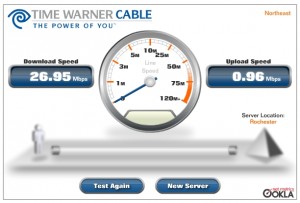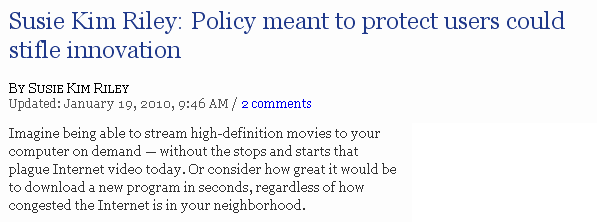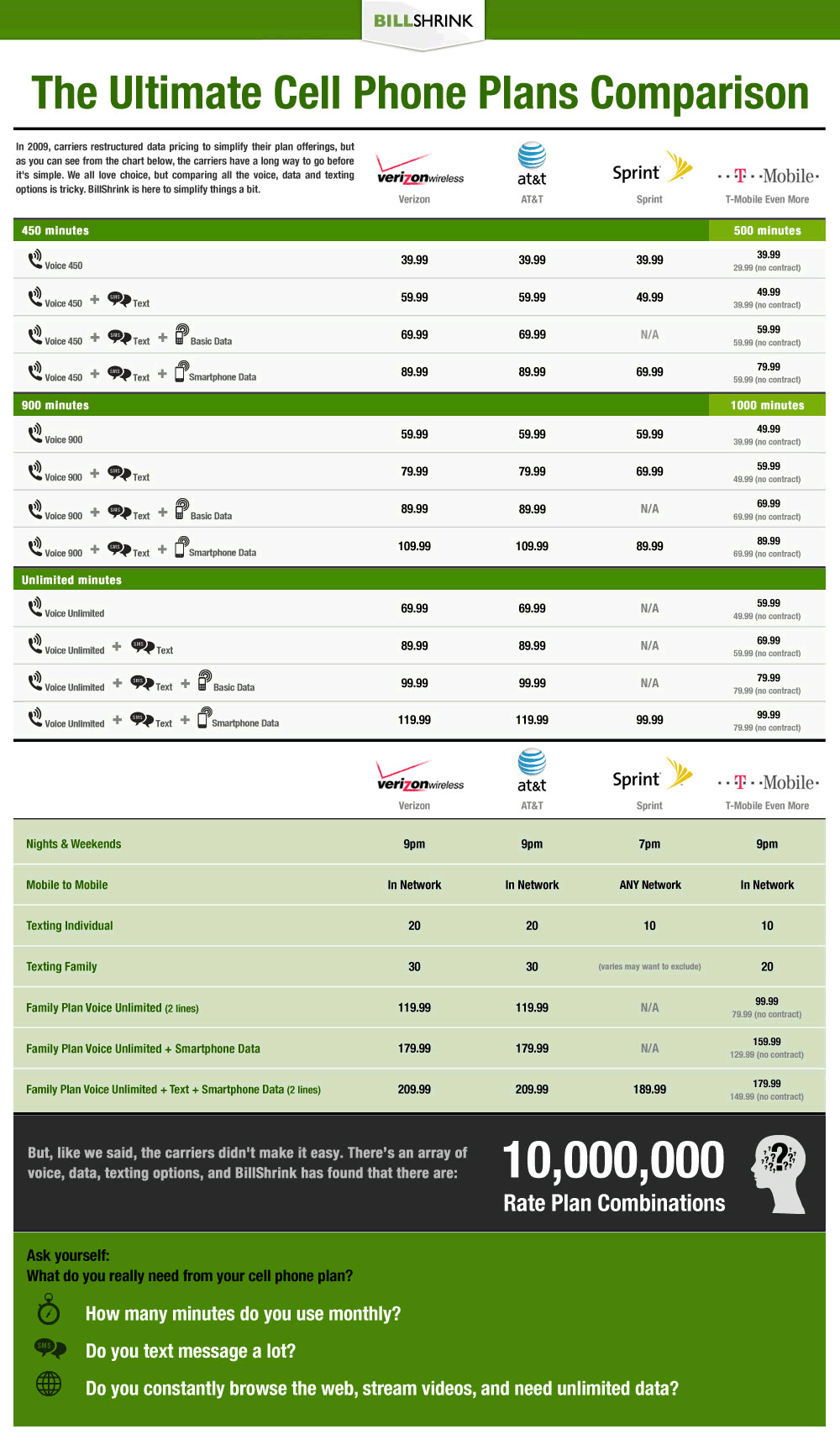
DC Circuit Court
Once again, the United States Court of Appeals for the District of Columbia Circuit is proving to be the best friend corporations have to unravel regulatory policy and consumer protection laws that might violate corporate free-speech or trade rights. It has become a favored venue for telecommunications providers who want to be rid of pesky prohibitions or reasonable regulation.
After a series of arguments, universally considered disastrous for the Federal Communications Commission’s authority to regulate broadband, the cable operator may want to send flowers to the Court… a lot of them.
Earlier this month, attorneys for the FCC defended their right to tell Comcast it cannot throttle its customers’ broadband speeds. The FCC maintains it has regulatory authority over broadband service, claiming such power could be inferred from Title I, Section 230(b) of the Communications Act, which states that it is the policy of the United States “to preserve the vibrant and competitive free market that presently exists for the Internet” and “to promote the continued development of the Internet.” From that the FCC wrote a policy statement stating it was, “necessary to ensure that providers of telecommunications for Internet access or Internet Protocol-enabled (IP-enabled) services are operated in a neutral manner.” That was the basis for their crackdown against Comcast’s speed throttle.
After the arguments between Comcast and the FCC concluded, court-watchers believe the Commission’s days of broadband oversight are numbered.
Ars-Technica’s Matthew Lasar documented the probable train wreck for those who seek to rein in provider abuses.
At issue is whether the FCC has been granted direct legal authority for Internet regulation by Congress. Comcast, and as it turned out many on the Court, believe the FCC is relying on policy statements, not written law, for their regulatory authority over Internet Service Providers. The Court transcript says it all:

Randolph
“In looking this over I found a good many situations in which Congress has instructed the FCC to study the Internet,” said Justice A. Raymond Randolph, [appointed to the Court by President George H.W. Bush in 1990], “and taxation of transit sales transactions on the Internet, and this, and that, and the other thing. But what I don’t find is any congressional directive to the FCC to regulate the Internet.”
It wasn’t hard for [Comcast attorney Helgi G.] Walker to summon a response to this observation. “That’s right,” she declared.
And with that, Comcast had won. Even before the FCC’s attorney got to the bench, the judges were doing Walker’s job, swatting aside arguments on behalf of the agency’s Order sanctioning the ISP. Pro-FCC briefs to the court had noted that the Supreme Court recognized the Commission’s ancillary authority in its Brand X decision, a crucial ISP access case. Randolph threw this bullet point into the trash icon, referring to the “offhand statement” in Brand X. “And the Supreme Court has moved so far away from that kind of an analysis in today’s modern jurisprudence,” he added, “it seems antiquated.”
By the time Commission lawyer Austin C. Schlick began his rebuttal, Randolph moved in for the kill.
“May it please the Court,” Schlick began. “Ms. Walker hasn’t attempted to defend the actual network practices that were employed here, and so I won’t spend time just… ”

Sentelle
[Justice David] Sentelle cut him off. “Well, her position is that she doesn’t have to,” he tersely noted. “She’s here to say that you don’t have any business inquiring into those practices, ergo we don’t either.”
That’s true, Schlick conceded. “Right,” Sentelle warned. “So you may want to move on to something that’s at issue then, Counsel.”
And that was largely that. The Court is very likely to hand down a ruling that strips the FCC of its ability to regulate or oversee broadband service in the United States. Even Schlick knew what has forthcoming:
By the end of the discussion Schlick was bargaining with the judges. “If I’m going to lose I would like to lose more narrowly,” he confided. “But above all, we want guidance from this Court so that when we do this rule-making, if we decide rules are appropriate we’d like to know what we need to do to establish jurisdiction.”
“We don’t give guidance,” Randolph grumbled, “we decide cases.”
Comcast should have bought lunch for everyone.
So now public policy groups and advocates of FCC oversight over broadband, particularly as it relates to Net Neutrality, are scrambling to figure out what to do next.
It comes down to four possible outcomes:
- One of the parties appeals the case;
- Corporate control of broadband without oversight is assured, as the FCC is stripped of any regulatory authority;
- The FCC manages to find some other wording from laws Congress passed that justifies lawmakers wanted the agency to oversee and regulate broadband services;
- Congress passes new laws specifically enacting broadband regulatory authority for the FCC.
Of course, today’s bland authority over broadband comes as a result of legislative compromise from the great regulatory battles over telecommunications during the Clinton Administration. Providers argued less is more, and have grudgingly accepted limited FCC authority over some of their services, except when a challenge threatens to cost them control or a lot of money.
With a hostile reception at the Court, and the FCC’s “surrender first, fight later” legal argument, an appeal may only delay the inevitable. The FCC does have plenty of Congressional directives to review which may permit it to enact Net Neutrality protection, but another provider lawsuit opposing Net Neutrality is inevitable. In fact, without the passage of a clear, concise federal law providing the Commission with explicit broadband regulatory authority enacting Net Neutrality and other protections, the aptly-numbered “2” is the likely outcome for consumers.
Thankfully, Rep. Edward Markey’s (D-MA) Internet Freedom Preservation Act would solve much of this problem, by forbidding Internet service providers from doing anything to “block, interfere with, discriminate against, impair, or degrade” access to any lawful content from any lawful application or device.
Getting it passed in a Congress mired in division is another matter. The best way to overcome that is a strong showing of support for Markey’s legislation in calls and letters to your members of Congress, and that you are carefully watching their votes on this issue.


 Subscribe
Subscribe










